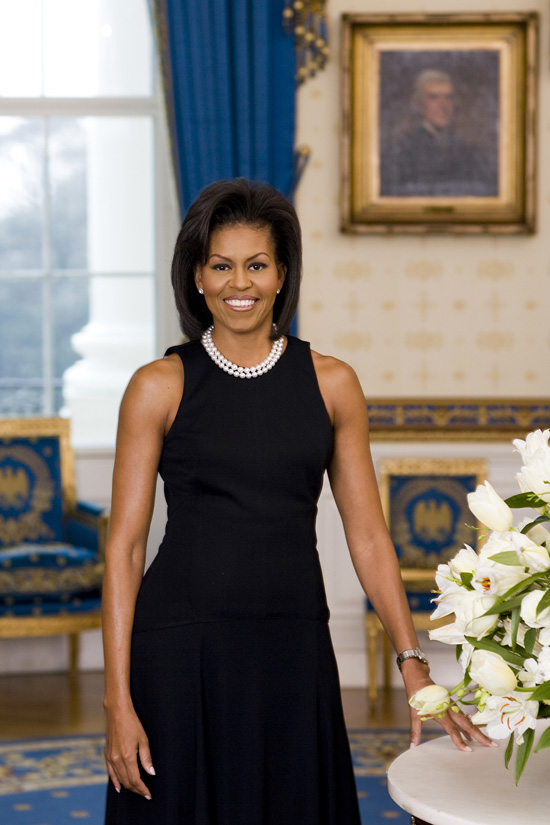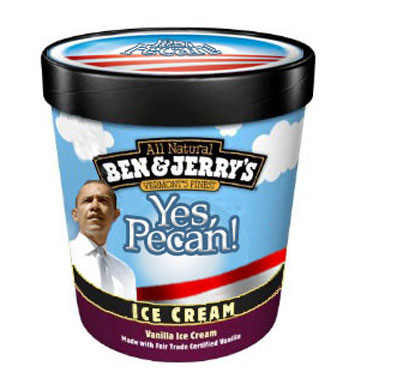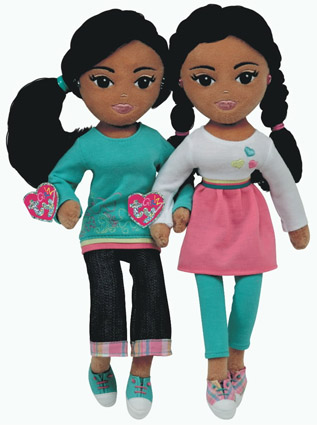Uniformly Detested, But Legal
In today's New York Times, the Ethicist takes on the question of whether it is OK to charge employees for their "invariably ugly" uniforms. Unfortunately, his analysis goes a bit too far and gets the law wrong.
 While Counterfeit Chic won't quibble with the conclusion that requiring workers to pay for hideous hats and horrible polyester shorts adds insult to injury, it is nevertheless usually legal. Under the federal regulations implementing the Fair Labor Standards Act, employers may require employees to bear the cost of mandatory uniforms. The only legal limit on this policy is the requirement that paying for the uniform cannot effectively drive the employee's pay below the minimum wage.
While Counterfeit Chic won't quibble with the conclusion that requiring workers to pay for hideous hats and horrible polyester shorts adds insult to injury, it is nevertheless usually legal. Under the federal regulations implementing the Fair Labor Standards Act, employers may require employees to bear the cost of mandatory uniforms. The only legal limit on this policy is the requirement that paying for the uniform cannot effectively drive the employee's pay below the minimum wage.
In practice, this means that minimum wage employees cannot be forced to pay for items of clothing that they can't wear elsewhere, but other workers can be. And all employees -- minimum wage or not -- can be required to provide their own clothing if the required items of apparel can be worn outside of work, as in the case of a restaurant server told to wear a white shirt and black trousers.
Income tax law is consistent with employment law in this regard. While an employee who pays for his or her own clothing may not deduct the cost of work clothes that (s)he could theoretically wear elsewhere, like a business suit, (s)he may deduct the amount paid for an article of clothing that is required or essential for work, is not suitable for personal wear, and is not in fact worn apart from work. So go ahead and deduct the cost of that lab coat or giant team mascot head, but not your rain boots or long underwear -- as one taxpayer learned to his dismay.
 Having established that the Ethicist is mistaken with regard to law (despite quoting a lawyer), I should probably stop now and refrain from commenting on the ethics of the issue. But who can resist a debate about fairness?
Having established that the Ethicist is mistaken with regard to law (despite quoting a lawyer), I should probably stop now and refrain from commenting on the ethics of the issue. But who can resist a debate about fairness?
Is it really so awful to for a company to insist that employees pay for their own apparel just because they can only wear those particular items to work? Admittedly, buying corporate logo gear may not be high on the list for that first paycheck, but many of us have clothes in our closets that are in practice for work only. How many ties would the average man own if he didn't have to wear them to the office? And yet he had to pay for all of them himself -- and can't even deduct the cost of these symbolic nooses.
So while my sartorial sympathy goes out to J.M. in Arizona and anyone else whose employer requires a uniform that the employees don't want to wear, much less buy, the practice is ultimately neither illegal nor unethical.








 What do judges and nuns, mourners and style icons, Betty Boop and Coco Chanel have in common? Their "little black dresses" -- generously interpreted -- all have some connection to caselaw or custom.
What do judges and nuns, mourners and style icons, Betty Boop and Coco Chanel have in common? Their "little black dresses" -- generously interpreted -- all have some connection to caselaw or custom.  Intrigued? Drop by Fordham Law School's main lobby to check out the coolest law library showcase ever, courtesy of Professor and Law Library Director Bob Nissenbaum and Reference Librarian Janice Greer. (And OK, an idea or two from your favorite law prof.)
Intrigued? Drop by Fordham Law School's main lobby to check out the coolest law library showcase ever, courtesy of Professor and Law Library Director Bob Nissenbaum and Reference Librarian Janice Greer. (And OK, an idea or two from your favorite law prof.)  While reading yesterday's New York Times
While reading yesterday's New York Times  Move over, Mr. President. The First Lady has a new marketing plan that may eliminate the need for additional taxpayer-funded bailouts and pull America out of the recession: First Family branding.
Move over, Mr. President. The First Lady has a new marketing plan that may eliminate the need for additional taxpayer-funded bailouts and pull America out of the recession: First Family branding. Of course, the President's own endorsement is also a huge selling point for branded merchandise, including clothing. He's said to be particularly excited about collaborating with Nike on a basketball shoe, and will personally oversee the design of a line of ties to be sold exclusively in the White House gift shop.
Of course, the President's own endorsement is also a huge selling point for branded merchandise, including clothing. He's said to be particularly excited about collaborating with Nike on a basketball shoe, and will personally oversee the design of a line of ties to be sold exclusively in the White House gift shop.  The best part of Michelle's plan is that as long as Barak remains in office, all proceeds from the sale of these official First Family products will be donated directly to the federal government. So not only will the made-in-USA merchandise stimulate shopping among otherwise wary consumers here and abroad, but the proceeds will directly alleviate the rapidly mounting national debt.
The best part of Michelle's plan is that as long as Barak remains in office, all proceeds from the sale of these official First Family products will be donated directly to the federal government. So not only will the made-in-USA merchandise stimulate shopping among otherwise wary consumers here and abroad, but the proceeds will directly alleviate the rapidly mounting national debt.


